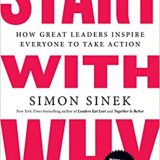
We all love a good story, whether our preference is for fiction or non-fiction.
It doesn’t matter if you’re reading a book, watching a movie, or listening to the news, expanding your mind watching a TEDx talk or listening to a podcast. All these media use stories to communicate their messages.
Why?
One reason is because it makes the message more interesting. We may miss the importance of a fact if the information is presented in a boring way; but when it is woven into a story, it can reveal a message that we otherwise would have missed.
The best storytellers make us feel that we are part of narrative. They make us laugh because of the circumstances or cry by getting us to experience the emotion that the characters do.
And it doesn’t matter if the characters are portrayed as human beings or animals, as George Orwell’s Animal Farm so aptly illustrates. Kids as well as adults identify with them because they recognize something of themselves in them, and often they desire to become more like them.
Another reason stories are told is because people will often take action as a result. It is why the authors of many non-fiction books create personas. They want their readers to be able to easily identify and personalize the principles that they describe.
On the other hand, a program, or book, or movie, etc. that’s boring for you is that way because you can’t identify with anyone who’s in it, or you can’t imagine that your circumstances would ever be like any that the characters have.
Stories can also motivate you to avoid certain behaviors.
For example, years ago, the US Air Force used to require certain of its airmen to watch old Highway Patrol films of the aftermath of automobile accidents, some of which were quite unpleasant, before holiday weekends. The goal was to discourage people from driving after drinking and to take breaks so that they would not fall asleep at the wheel.
Stories are vital to your organization, too, and not just for your shareholders. The people who work for you need them to personalize the organization’s purpose.
Simon Sinek, author of the book Start With Why, says that people don’t buy what you do; they buy why you do it.
The same thing could be said for some of your employees. They work for you because they believe in why your organization exists or should exist. They believe in the cause that it promotes or supports.
Why do people join the Army, or the Air Force, or the Navy, the Marines or the Coast Guard?
Some do it because they need a job. Others do it as a means to an end, for example, to get the training they need to advance their civilian careers. But the sacrifices can outweigh the benefits. The Army might put you through medical school, but they will also send you into combat. Or, you may get your multi-engine instrument training for flying large aircraft from the Air Force, but you could also end up stationed somewhere away from your family for six months or a year.
And the other thing to remember is that when you’re in the Armed Forces, you can’t just hand in your two-week notice and start looking for something else to do if you’re not happy with your work conditions or dislike your boss. Your obligation is measured in years.
So that means that most people who become service members do so for another reason. They do it because they believe in the defense of the nation. It is why Pat Tillman left his lucrative professional football career and joined the Army after 9/11. Doing so cost him his life, but he did it because he believed in what the Army was doing.
Surprisingly, many managers, not to mention their founders do not know why they do what they do. They don’t know why the business exists at all, or why they try to make it a success, except for the fact that they needed to eat. But according to Sinek, making a profit is a result and is always a result. It is never why people create a business.
And that is probably why they struggle to use stories in their own organization. It’s because they themselves don’t know the story.
You will never be able to inspire anyone to do anything until you learn how to use stories to explain why your organization exists at all. Take away the profit motive, and your organization may become meaningless. It may provide employment for some number of people, though they undoubtedly would work for someone else if you didn’t, or help you to occupy your time on earth, but neither of those things really justifies why it should exist at all.
How do you find your story?
By thinking about how your organization inspires you.
Why do you get up in the morning?
Why are you excited to get to work?
What is there about your job that motivates you to keep doing it?
You are the founder of your business, or you’re a member of the senior executive team. There are more opportunities for you in other organizations at your level than any other, and that’s because of the paucity of qualified people.
Why do you stay where you are?
Is it just because your kids are still in high school? Probably not; not when you really think about it.
The reason you do something at all, when you really don’t have to, is because of its emotional context. You feel that it’s the right thing to do. You would not be happy doing anything else. And it is that feeling that you have to convey in your stories if you want to motivate others.
There’s something else going on here, too.
When people are inspired by your stories, then they want to follow you. That’s because they believe in the message the stories convey. They believe in your vision, and they want to help you to realize it.
And, of course, to do that they have to keep working for you, which means that they’ll be loyal to you. There’s almost nothing that they won’t do for you because they believe so strongly in what you’re trying to do.
That’s the power of organizational stories.
The opposite, however, is also true. If your stories do not inspire, or you have no stories at all, then folks are left to find that inspiration themselves; and in the absence of that leadership, their direction will be aimless. They’ll lose their way.
They’ll forget why they work for you. It will become just another job.
You see, when you don’t have a strong reason why you do what you do, then the fact that you do it at all is reduced to its lowest common denominator, which is to make a living. Nowadays, people want much more than that.
If you don’t know why you do what you do, then eventually that will trickle down through your organization until no one does. And as that happens, more and more people will start to look for someone else they can work for who does; someone that they can follow.
Stories matter to your organization because they inspire the people who work for you to do so in a way that enables you to fulfill a mission that they believe in.
You must remind them often why you do what you do so that they, too, will remember why they are there.











